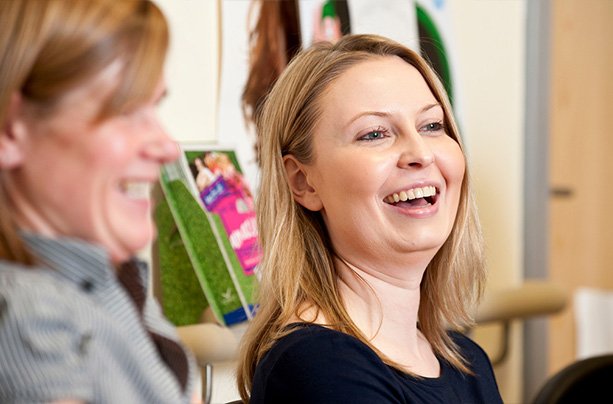Often, there’s a link between struggling with money and poor mental health. Feeling low can make it tough to manage money, equally financial concerns can have a huge impact on how we feel and worrying about it can make us feel even worse.
It is a common misconception that financial hardship only affects those on lower incomes, all income groups can be affected by financial worries. It can happen at any age too. Our Employee Assistance Programme (EAP) can support with financial planning along with finding advice and links to other websites which help to support your financial health and wellbeing on this page.
Benefits and entitlements
Welfare Support Services
Highland Council deliver welfare support services which aim to put more money in people’s pockets so that they can pay their bills heat their home and have a better quality of life. They can provide advice and support about benefits and other entitlements that are available and provide support to help complete the relevant forms.
The service is available across Highland. For more information have a look on the Highland Council website.
You can also contact them by email at welfare.support@highland.gov.uk or by phone 0800 090 1004
Citizens Advice Scotland
Citizen Advice Scotland offers free, confidential, impartial and independent advice on a whole range of issues including:
- Benefits
- Work
- Debt & Money
- Consumer Issues
- Housing
- Family
- Law & Courts
- Immigration
- Health
Call Scotland’s Citizen Advice Helpline on 0800 028 1456 or search online to find your local branch: www.cas.org.uk/bureaux
Credit unions
A credit union is a financial co-operative that is owned and controlled by a group of members who share a common bond. Unlike banks, each member of the credit union has an equal say in the running of the credit union, regardless of how much they have saved. Credit unions are concerned about the financial welfare of their members, rather than purely making a profit.
Credit Unions can offer a good opportunity to save and borrow money and provide a more ethical alternative to banks and other financial institutions. There are lots of different credit unions available, often run very locally and at community level. Details of the NHS Credit Union and Hi-Scot Credit Union are provided below.
NHS Credit Union
Membership of the NHS Credit Union is open to NHS Employees in Scotland, North England (North East, North West and Yorkshire & Humberside) and their families living at the same address.
It is also available to contractors working wholly for the NHS in those areas, as well as members of their families living at the same address.
More information and application forms for membership can be found online via the NHS Credit Union website.
HI-Scot
HI-Scot is available for anyone who lives or works in the Highlands and Islands of Scotland.
HI-Scots lets people in the Highland and Islands come together to save, and borrow money at low rates. Operated on a not-for-profit basis with surpluses being returned to members, membership of HI-Scot can also be seen as a more ethical alternative to banks and other financial institutions.
For more information and details on how to join, visit the HI Scot website.
Financial Education
Affinity Connect, who are a financial wellbeing and retirement specialist for those in the public sector, are hosting a 1 hour and 30 minute course titled ‘Focus on your finances’ between April and December 2023. If you would like to attend the course, please choose a date and confirm your details on their event registration page.
Gambling information
What is problem gambling?
Problem gambling is defined as gambling that is disruptive or damaging to you or your family, or interferes with your daily life. Gambling can go from a fun, harmless activity to an unhealthy obsession with serious consequences. Gambling problems can happen to anyone, from any walk of life. Gambling can come in many forms from betting on sports, purchasing scratch cards, lottery tickets, using online casinos and betting sites to attending bingo or using slot machines. The rise in the number of online internet gambling sites and mobile apps has made gambling more easily and readily accessible.
Problem gambling can strain relationships, impact on work and have serious financial consequences. There is a risk that escalation of the problem could lead to harmful behaviours like running up huge debts or even stealing money to gamble.
Signs of problem gambling
If you think you might have a gambling problem, help is available.
To start, answer these 10 questions with ‘yes’ or ‘no’:
- Do you spend a lot of time thinking about gambling?
- Are you spending more money on gambling as time goes on?
- Have you ever tried to stop gambling, or cut down on or control your gambling, and not been able to?
- Do you get restless or irritable if you try to cut down on gambling?
- Do you gamble to escape from difficulties in your life, or to cheer yourself up?
- Do you keep playing after losing money to try to win it back – often called ‘chasing losses’?
- Have you lied to other people about how much time or money you’ve spent gambling, or how much you’ve lost?
- Have you ever stolen money to fund gambling?
- Has gambling affected your job, relationships, or home life?
- Do you ask other people to lend you money when you’ve lost money through gambling?
If you’ve answered yes:
To 1 question – you might have a problem, and it would be a good idea to seek help.
To 3 questions – gambling probably feels like it’s a problem, and you should seek help.
To 5 or more questions – it’s likely gambling feels like it’s affecting every part of your life. You should get help as soon as possible.
Source: NHS Inform
Support and Getting Help
There are a lot of ways to access help with problem gambling. There’s also support available if you have a loved one with a gambling problem.
Internal Support
Individuals are encouraged to speak to their manager and be open and honest regarding any gambling problem and how it is affecting their working life.
Managers can use internal services to seek advice and support for employees’ who have a gambling problem. The Occupational Health and Safety Advisory Service (OH) can provide information, advice and practical assistance to support staff any manager has a concern about. They can support individuals to identify occupational stressors, conduct a risk assessment and advise on any adjustments which should be considered. NHS Highland can also offer confidential support to staff through the Wellbeing Centre. This service provides someone to talk to and signposting for further help. They work on the premise that sometimes just talking through issues can help staff to see a way through their problems on their own. The Employee Assistance Programme can support individuals with money and debt information, or counselling support. To contact Validium, use the freephone telephone number 0800 3 58 48 58 or through their online vClub portal. At first login, use the following username and password –
Username: NHSHighland
Password: EAPsupport
and then you can create your own personal account for future use.
External support
Gamblers Anonymous Scotland has meetings every day, and is free to attend. The meetings are informal and friendly, and there are currently around 70 meetings held in Scotland every day. Gamblers Anonymous also has a 24-hour helpline you can phone on 0370 050 8881.
Visit the Gamblers Anonymous Scotland website
If you have a loved one with a gambling problem, support is available from Gam-Anon Scotland. The organisation has supportive, confidential meetings that are separate from Gamblers Anonymous meetings. You can also phone the Gam-Anon 24-hour helpline on 0370 050 8881.
If you’re struggling with the impact gambling is having on your life, or the life of a loved one, phone Breathing Space on 0800 83 85 87 for support and counselling. Breathing Space is open:
- Weekdays: Monday to Thursday 6pm to 2am
- Weekends: Friday 6pm to Monday 6am
For more information visit NHS Inform.
Help with childcare costs
You can get up to £500 every 3 months (£2,000 a year) for each of your children to help with the costs of childcare.
For more information about how you can receive help with childcare costs have a look on the Childcare Choices website.
Help with travel to work
Walking, cycling, liftshare and public transport can help save you money on your commute (and maybe that gym membership). Leaving the car at home a couple of days a week, going from running two cars to one, or getting better support if you’re a non-driver, can all make a difference to household finances.
Check the intranet under Staff > Active Travel, and the NHS Highland Active Travel Facebook page.
Staff Cycle to Work scheme
The popular staff Cycle to Work scheme helps in two ways: you pay less for your bike and accessories by saving on tax, and you spread the cost of a new bike and accessories over 6, 12, 18 or 24 monthly payments..
Example: for a £1800 ebike, as a basic rate taxpayer, you’d pay £1327.50 in total in 24 monthly payments of £55.
Sign up on the Cyclescheme website, with all the details on the intranet under Staff > Active Travel.
Public Transport
Stagecoach and NHS Highland have teamed up to offer staff a 10% discount on their popular 7-day Megarider tickets in and around Inverness. Buy online or on the app using discount code 10HINHSSUSTRANS.
For journey planning by public transport check Traveline Scotland
Liftshare
Liftshare can be really convenient, even for a couple of days a week as suits. Check out the Highlands & Islands Liftshare site and see if you can find a lift, or find a passenger.
Home Energy Scotland
Home Energy Scotland is funded by the Scottish Government and managed by the Energy Saving Trust. Its aim is to help people to have warmer homes, reduce their bills and lower their carbon emissions. Advice is provided through a network of local centres covering all of Scotland, including one in Inverness serving the Highlands and Islands. Home Energy Scotland’s expert advisers offer free, impartial advice on energy saving and keeping warm at home.
Freephone 0808 808 2282 – weekdays 8am – 8pm and Saturdays 9am – 5pm. For more information please visit the Energy Saving Trust website.
Money and financial worries
If you are having concerns about your finances, NHS Highland has partnered with other agencies; including Highland Council, Social Security Scotland, Citizens Advice Scotland, The Trussell Trust, and Independent Food Aid Network, to develop a resource to provide financial advice and support:
There are also translated versions of the Highland leaflet on the Independent Food Aid Network website. Please note that you may need to navigate to your desired geographical area for further information.
Training courses are also available for anyone who can help support individuals around money worries:
- Money Counts course – Level 1 (Argyll & Bute HSCP only)
- Money Counts course – Level 1 (North Highland only)
- Money Counts course – Level 2 (North Highland only)
Please note that a TURAS login is required for access to the Money Counts course. (available to staff in Highland only).

